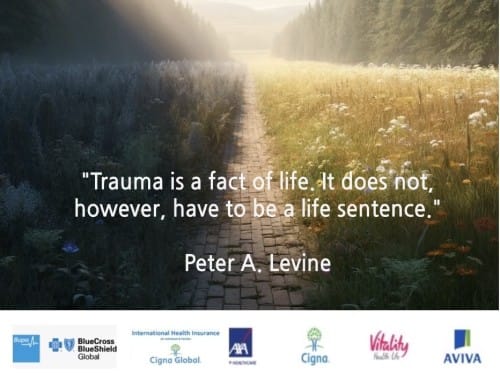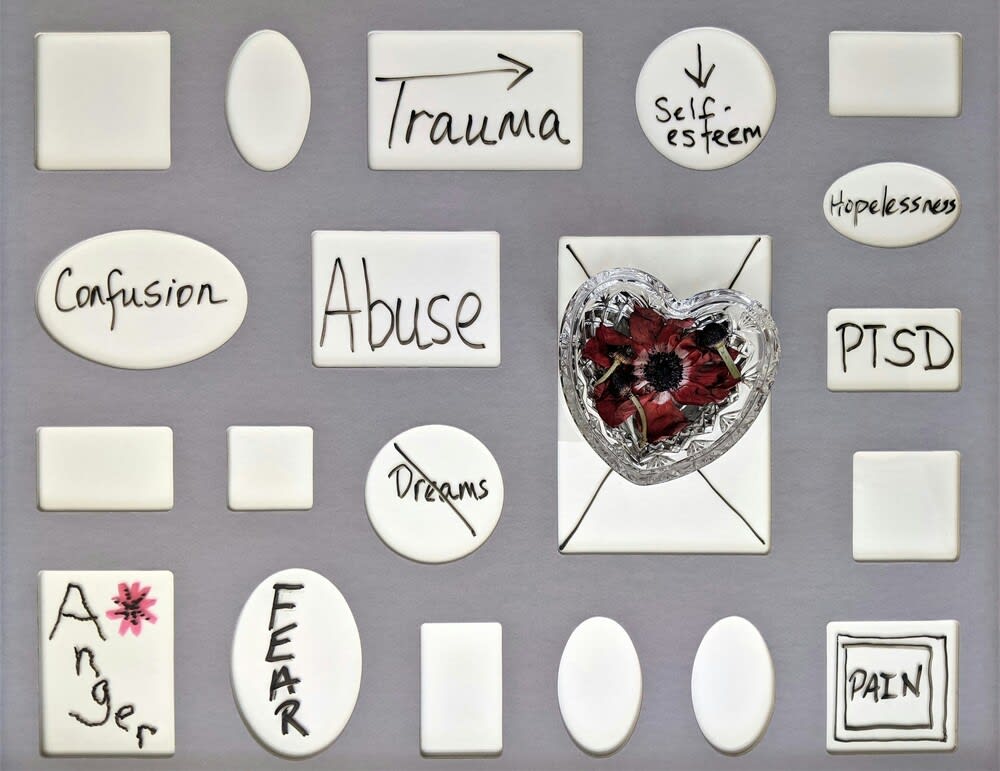Trauma Focused CBT

posted 9th April 2024

What is Trauma Therapy
Trauma therapy is a specialised approach to treating trauma-related disorders, including post-traumatic stress disorder (PTSD). The National Institute for Health and Care Excellence (NICE) in the UK provides guidelines to ensure that trauma therapy is delivered effectively and safely. Here’s an overview based on the NICE guidelines and general best practices in the field of trauma therapy:
NICE recommends specific therapeutic modalities for PTSD, including trauma-focused cognitive behavioral therapy (CBT) and eye movement desensitisation and reprocessing (EMDR). These therapies are evidence-based and have been found to be effective for many individuals experiencing PTSD. The guidelines suggest that trauma-focused psychological treatments for PTSD should typically be delivered over a period of 8-12 sessions, with some individuals requiring more sessions based on the severity and complexity of their trauma. Each session usually lasts between 60 to 90 minutes.
Suitability for Trauma Therapy
Assessment of Readiness: Not everyone may be ready or suitable for trauma therapy immediately following a traumatic event or if they are in a state of acute distress. A thorough assessment by a qualified mental health professional can help determine the right timing and type of intervention.
Potential Risks: For some individuals, particularly those with complex PTSD or those who are currently in unstable or unsafe circumstances, the process of directly confronting traumatic memories might initially increase distress. In such cases, a phase-based approach that begins with establishing safety and stabilization might be recommended before proceeding to trauma processing.
Post-Therapy Support
Coping Strategies: Therapists often provide exercises or strategies to help individuals manage any distress that arises during or after sessions. These might include relaxation techniques, grounding exercises, or mindfulness practices.
Continued Care: It’s important for therapy to include planning for ongoing support and coping strategies beyond the end of the treatment sessions.
The Importance of Specialised Trauma Therapy
Trauma specialists are trained to handle the nuanced and often complex nature of trauma. Their expertise ensures that therapy is conducted in a way that minimizes the risk of re-traumatization and maximizes the potential for healing. Trauma specialists are also equipped to tailor therapy to the individual’s specific needs, taking into account the nature of the trauma, the individual’s history, and any co-occurring conditions.
While trauma therapy is a powerful tool for healing, it's crucial that it's undertaken with the guidance of a specialist who can ensure the safety and efficacy of the process. The journey of healing from trauma is highly personal and varies greatly from one individual to another. A trauma specialist can assess the suitability of trauma processing for each person, recommend the most appropriate therapeutic approaches, and provide the necessary support throughout the process.
What is Trauma Focused CBT?
In the intricate tapestry of human experience, trauma stands out as a profoundly disruptive thread, capable of altering the very fabric of our lives. It lurks in the shadows of our collective consciousness, manifesting in myriad forms and touching individuals across the spectrum of age, race, and socio-economic status. As society grapples with the pervasive impact of traumatic experiences, the quest for effective healing modalities has never been more urgent. Among the most promising approaches to emerge in recent years is Trauma-Focused Cognitive Behavioral Therapy (TF-CBT), a specialised therapeutic strategy designed to confront the ghosts of trauma head-on. This article delves into the essence of TF-CBT, exploring its foundations, applications, and the beacon of hope it offers to those ensnared by the grip of traumatic memories.
TF-CBT is typically delivered over 12 to 16 sessions, though the duration can vary depending on the individual's needs. The treatment is structured around several core components, often remembered by the acronym PRACTICE:
Psychoeducation: Teaching individuals about trauma and its effects on the mind and body.
Relaxation: Learning and practicing relaxation techniques to manage anxiety and stress.
Affective modulation: Developing skills to identify and regulate emotions.
Cognitive processing: Identifying and challenging unhelpful thoughts related to the trauma.
Trauma narrative: Creating a narrative of the traumatic event(s) in a safe and supportive environment to help process the trauma.
In vivo exposure: Gradually confronting activities, places, or objects that are safe but are avoided because they remind the individual of the trauma.
Conjoint sessions: Sessions that may involve parents or caregivers (particularly in therapy with children) to discuss the trauma narrative and promote understanding.
Enhancing future safety and development: Developing strategies to cope with potential future stressors or trauma reminders and promoting positive future planning.
Goals of TF-CBT:
The overarching aims of TF-CBT are to:
1. Alleviate symptoms of PTSD, depression, anxiety, and other trauma-related disorders.
2. Reduce feelings of shame and guilt.
3. Improve day-to-day functioning and quality of life.
4. Strengthen supportive relationships and improve interpersonal skills.
5. Enhance personal safety and growth.
6. Effectiveness of TF-CBT:
Research has consistently shown TF-CBT to be effective in reducing symptoms of PTSD, depression, and behavioral problems in children and adults. It has been successfully applied to a wide range of traumas, including physical and sexual abuse, domestic violence, natural disasters, and the loss of a loved one.
TF-CBT is considered suitable for a wide range of individuals who have experienced trauma, including children as young as three years of age, adolescents, and adults. It is adaptable to diverse cultural backgrounds and can be delivered in individual or group settings, though it is most commonly provided on an individual basis.
Trauma-focused CBT represents a crucial approach in the field of mental health for addressing the pervasive and often debilitating effects of trauma, emphasising not just the past traumatic experiences but also the individual's current and future coping and resilience.



